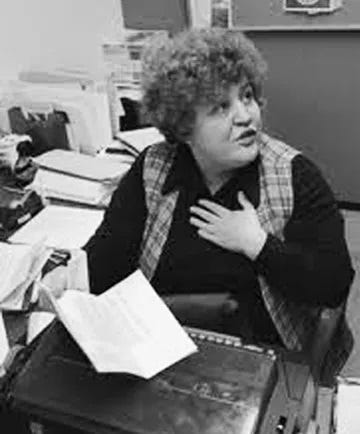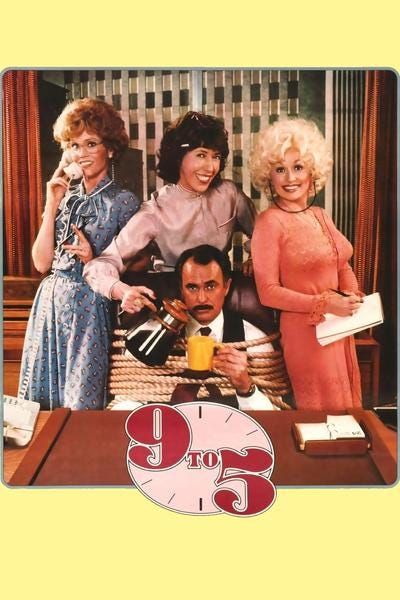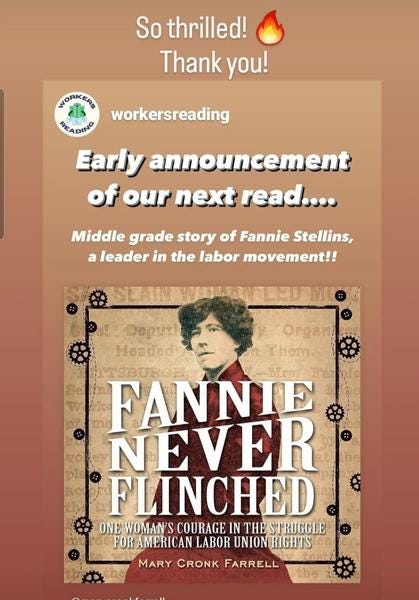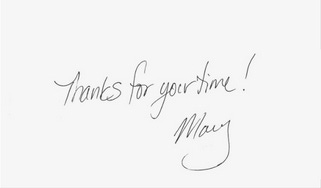Iris Rivera, a woman whose single act of courage snowballed, helping so called "pink-collar" workers leave their aprons at home.
The 35-year-old widow got her three young boys off to school that morning and arrived at the office on time, a day like any other. Iris Rivera worked as a secretary at the Illinois State Appellate Defender’s Office in Chicago.
The day went sideways when her boss sent a memo around changing policy in the breakroom. Here on out, Iris was assigned the job of making coffee. Until now, the 18 people in the office had taken turns.
Iris didn't drink coffee. And she didn't think making it should be part her duties as a secretary. But this was 1977, and despite the gains of the Women's Movement, you will see that brewing coffee remained one of the least offensive things many bosses asked their secretaries to do.
The Chicago Coffee Cup Protest
Iris told her boss she wouldn't make coffee. He promptly fired her. But she drew the line.
"I support my kids, I take care of them at home, and I have my job at the office. I don't take my job home and I shouldn't have to be a homemaker in the office," Iris said.
“Next they'll tell me to sweep the floor — and there's nothing wrong with sweeping floors. I don't mean to imply that. There's nothing wrong with making coffee either, it just isn't my job.”
Iris Rivera, 1977. Photo courtesy grandmotherschoice.blogspot.com/
Iris's boss Attorney James Geis explained to a reporter why he fired Iris. “The use of time is my responsibility. And I don’t think brewing coffee is unrelated to work.” Then, Geis went on vacation to Mexico.
In the 1970's, secretarial duties were largely undefined. The boss was the boss and secretaries had little power to question assignments. The 9 to 5 organization of women office workers in Boston tried to bring attention to the issue by sponsoring a contest inviting women to tell us the worst things their bosses had asked them to do.
Founder of 9 to 5, Ellen Cassedy says entries came from across the country.
"Many entries involved bodily fluids, private parts, or personal hygiene. A boss handed his secretary a warm container of his own urine to carry to a lab. Another asked his secretary to clean his dentures, and yet another wanted his nose hairs snipped.
"A boss routinely tucked his secretary’s paycheck into the waist of his pants and made her pluck it out... [One] fired his secretary for bringing him a corned beef sandwich on white bread instead of rye...Then there was the boss who received a suspicious package in the mail and handed it to his secretary, saying, “'This could be a bomb. You open it.'”
Honestly, in this climate, if I were Iris, I might have just made the coffee!
But Iris not only refused to make the coffee, she filed a discrimination complaint with the Illinois Fair Employment Practices Commission, and she went to the media. On hearing the news, dozens of secretaries rallied to her side, showing up outside her building.
To make their point clear, Women Employed, a Chicago group working for women and minority rights, passed out packets of ground coffee along with a flyer giving instructions so men could make their own coffee. It read, “Turn switch to on. This is the most difficult step, but, with practice, even an attorney can do it.”
Some men supported the secretaries' push for fair working conditions. The 9 to 5 organization was built on an intersectional model, pulling together the civil rights, feminist, and labor movements.
A labor columnist for the Chicago Tribune supported Iris in his regular Blue Collar Views, denouncing the 1971 National Labor Review Board decision that prohibited secretaries from forming unions, and offering his view on Iris's boss.
“If Mr. Geis were to stomp on an orphan, his image would be complete,” wrote Mike La Velle.
The Chicago Coffee Cup Protest, as it's remembered, proved hardier than a tempest in a teapot. The Illinois Fair Employment Practices Commission ordered that Iris be given back her job. Her boss left the Appellate Defender’s Office and returned to private law practice.
Iris's courage, one small victory, added impetus to the growing women's movement. Within a year, Women Employed had parleyed the Coffee Cup Protest into 820 paying members and $1.1 million in back pay and salary increases for women in Chicago.
Today, secretarial duties are much more well defined, the job is more commonly called administrative assistant and coffee itself has undergone a revolution. Today's office coffee machines are so simple anybody can operate them.
Many bosses pick up their own latte on the way to work. I've even noticed my neighbor, a young professional working from home, occasionally employ Door Dash for his cup of coffee.
Despite this progress, administrative assistant is still considered a “woman’s job”; only 6% of secretaries are men. The wage gap between men and women remains. According to the US Department of Labor, on average, women earn only 83 cents compared to a dollar for men. Black women earn only 64 cents, and Latinas, 57 cents.
In 1980, the smash hit movie 9 to 5 and Dolly Parton's song by the same name made a thunderous impact, inspiring women to demand better working conditions and equal pay. Which should inspire those of us who work in the arts and remind us that writing, acting and singing can make a difference.
The 1980 movie starred Jane Fonda, Lily Tomlin, and Dolly Parton as three working women who live out their fantasies of getting even with and overthrowing the company's autocratic, "sexist, egotistical, lying, hypocritical bigot" boss, played by Dabney Coleman.
The Coffee Cup Protest also reminds us that uniting for a common cause is the most powerful way to make change. It's great to see popular support growing as unions chalk up wins for workers.
According to a recent Gallup poll, American support for unions has reached 71%, the highest since 1965. No surprise, 74% of women, compared with 68% of men, agree unions are a positive force.
Sources
https://www.teenvogue.com/story/sexism-secretaries-us-history
https://grandmotherschoice.blogspot.com/2013/04/34-coffee-cup-not-my-job-description.html
https://www.womenslproject.com/blogs/news/iris-rivera
News and Links
Perfect time to mention I wrote a book about America's labor union movement. Fannie Never Flinched: One Woman's Courage in the Struggle for American Labor Union Rights earned starred reviews from Publishers Weekly, School Library Journal and Booklist.
Huge thanks to the Workers Reading book group for selecting the book this month! If your group or class reads the books for Women's History Month, let me know. I'd be happy to do a complimentary zoom chat.
Until next week...






